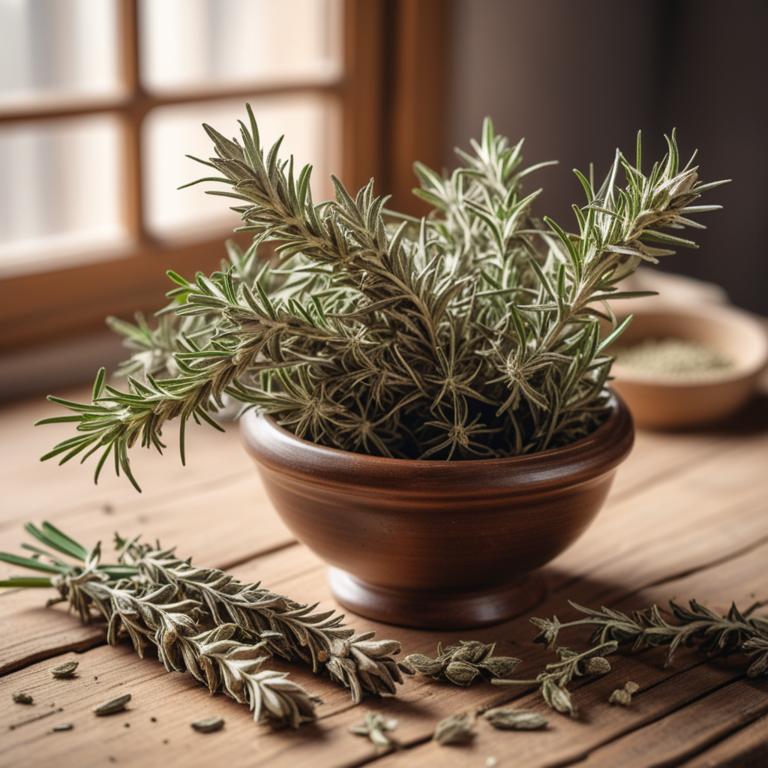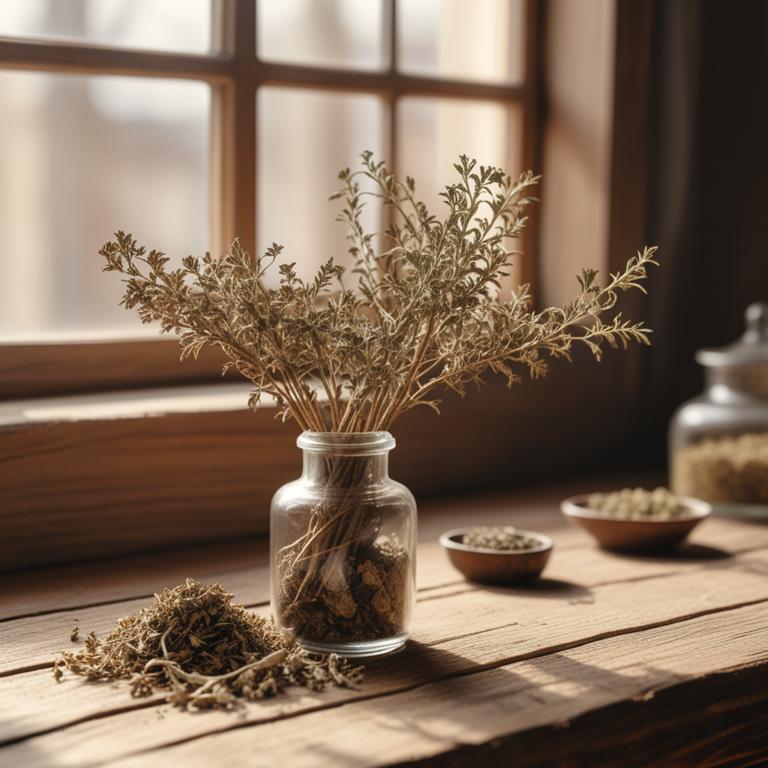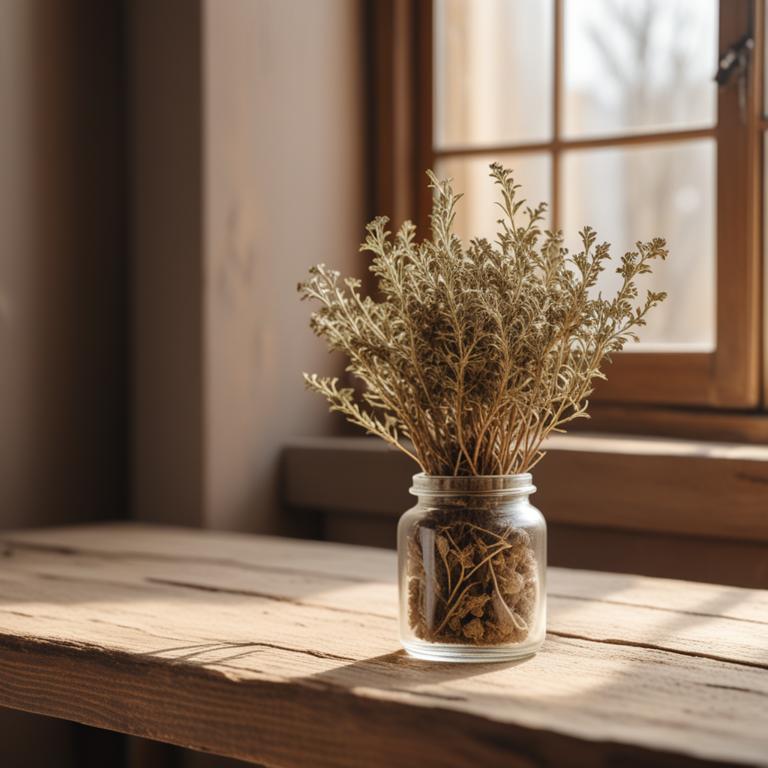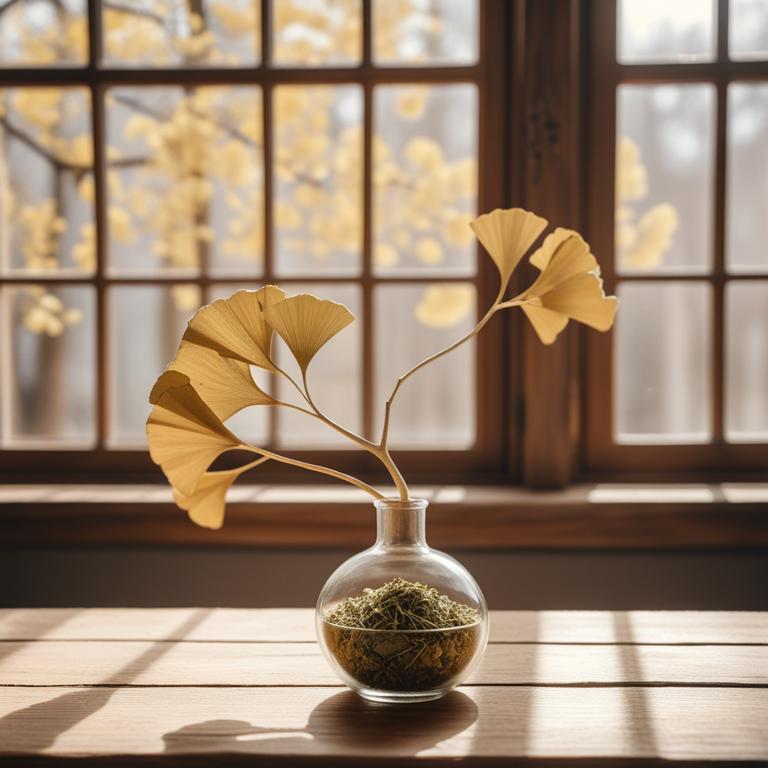Updated: Dec 1, 2024
Ear Blockage: Exploring Medicinal Herbs and Natural Remedies
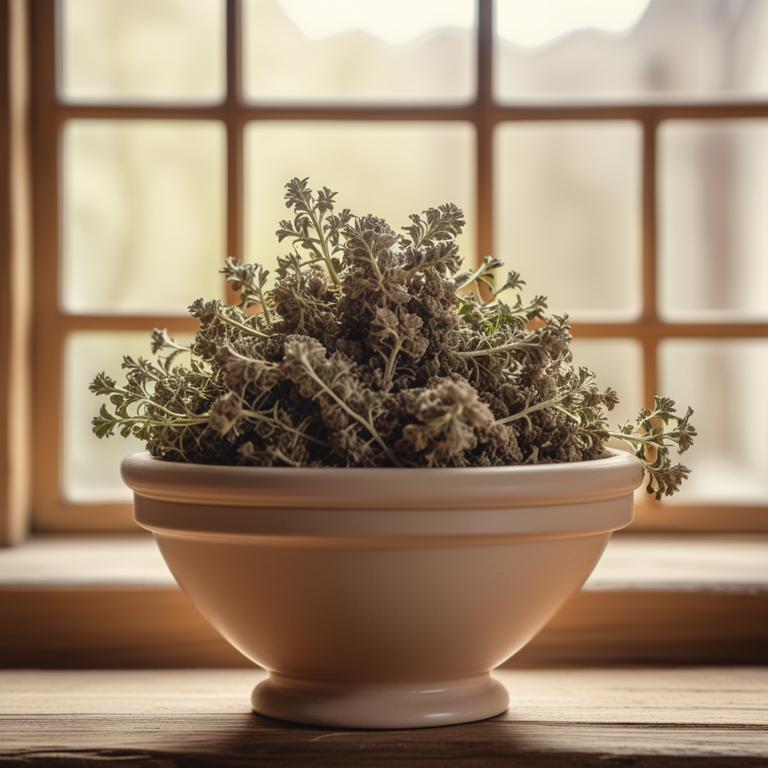
Ear blockage, also known as ear congestion, is a common condition where the ear canal becomes clogged with mucus, fluid, or earwax, leading to discomfort, hearing loss, and even pain.
If you have ear blockage, you may feel like you're stuck with a constant feeling of fullness in your ear, making everyday activities like listening to music, talking on the phone, or even sleeping difficult. Ear blockage can be caused by a variety of factors, including allergies, sinus infections, colds, and even earwax buildup. When the Eustachian tube, which connects the middle ear to the back of the throat, gets blocked, it can cause fluid to build up in the ear, leading to congestion. Other factors like a cold or sinus infection can also cause the Eustachian tube to become blocked, allowing mucus to build up in the ear.
To alleviate ear blockage, some people turn to herbal remedies. Herbs like eucalyptus, peppermint, and ginger have natural decongestant and anti-inflammatory properties that can help to clear out mucus and reduce swelling in the ear. You can use these herbs in various forms, such as making a tea by steeping dried eucalyptus leaves in hot water, or by applying a few drops of peppermint oil to a cotton ball and placing it in your ear. Ginger tea, made by steeping fresh ginger in hot water, can also be a soothing and comforting way to help alleviate ear blockage. Some people even use ear drops made from herbal extracts like eucalyptus or tea tree oil to help loosen and clear out earwax and other debris.
By using these herbal remedies, you may be able to find relief from ear blockage and get back to your normal activities.
Table of Contents
What contributes to ear blockage?
The main causes of ear blockage are related to issues with the ear's middle and outer parts.
Eustachian tube dysfunction is one of the common causes of ear blockage. The Eustachian tube is a small tube that helps to regulate air pressure in the middle ear. When it's not working properly, it can't open and close as it should, causing a blockage in the ear. This can be due to colds, allergies, or sinus infections that cause the tube to become swollen or blocked. Middle ear fluid is another cause of ear blockage. When the Eustachian tube isn't working, fluid can build up in the middle ear, leading to a blockage. This can cause symptoms such as hearing loss, ear fullness, and discomfort.
Middle ear fluid can be caused by infections, allergies, or colds, and in some cases, it can be a sign of a more serious condition. Earwax buildup is also a common cause of ear blockage. Earwax, also known as cerumen, is a natural substance produced by the ear to protect it from dirt and other foreign particles. However, when it builds up in excess, it can block the ear canal and cause a blockage. This can be due to using Q-tips or other objects to clean the ear, which can push the wax further into the ear. Tympanic membrane perforation is a more serious cause of ear blockage. The tympanic membrane, also known as the eardrum, is a thin membrane that separates the middle ear from the ear canal. When it's perforated, it can cause a blockage in the ear, leading to hearing loss, ear fullness, and discomfort.
This can be caused by injuries, infections, or other conditions that damage the eardrum.
How can herbs help alleviate ear blockage?
Using herbs for ear blockage can be a natural and effective way to alleviate symptoms.
One of the main benefits is that they can help to reduce swelling and inflammation in the ear canal, making it easier to hear and feel more comfortable. These herbs have anti-inflammatory properties that can also help to combat infections and reduce the risk of scarring.
Additionally, they can help to loosen and clear out earwax and debris that may be clogging the ear canal. Some herbs can also help to soothe and calm the ear, reducing feelings of discomfort and pain. Furthermore, using herbs can be a gentle and non-invasive way to address ear blockage, making it a suitable option for people who are sensitive to medications or prefer a more natural approach.
Regular use of these herbs can also help to prevent ear blockage from recurring in the future.
What are the primary medicinal herbs for treating ear blockage?

Herbs can be a great natural remedy for ear blockage.
One of the most effective herbs is Eucalyptus globulus, also known as eucalyptus. It contains a compound called eucalyptol, which helps to thin and clear out excess mucus and debris in the ears, reducing congestion and ear blockage. Echinacea purpurea, or coneflower, has anti-inflammatory properties that can help to reduce swelling in the ears and ease pain.
Zingiber officinale, or ginger, has natural decongestant properties that can help to clear out mucus and reduce pressure in the ears. Ginkgo biloba, or maidenhair tree, has antioxidants that can help to protect the ears from damage and promote healthy blood flow, which can help to clear out blockages. Melaleuca alternifolia, or tea tree oil, has antimicrobial properties that can help to kill bacteria and other microorganisms that can cause ear infections and blockages.
These herbs can be used in various forms, such as essential oils, teas, or tinctures, and can be applied topically or taken internally to help alleviate ear blockage.
What are the widely used herbal preparations for the relief of ear blockage?
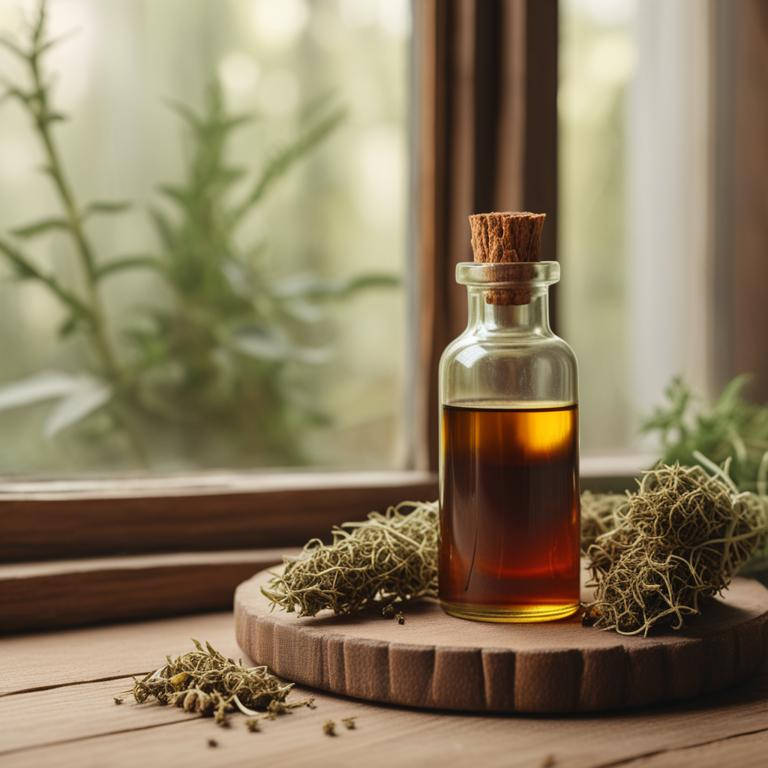
Herbal preparations can be a great help for ear blockage.
A tincture is a liquid extract of herbs that can be taken orally or applied topically to the affected ear. The active ingredients in the tincture can help to reduce swelling and ease congestion. For example, tinctures made from herbs like garlic and mullein have antimicrobial properties that can help to fight off infections. A decoction is a type of herbal preparation made by boiling herbs in water. It's often used to make ear drops that can be applied directly to the affected ear. Decoctions can be particularly effective for ear blockage caused by excess wax or debris. Herbs like olive leaf and plantain have anti-inflammatory properties that can help to soothe the ear and promote drainage.
An infusion, on the other hand, is a type of herbal preparation made by steeping herbs in hot water. It's often used to make teas that can be taken orally to help alleviate ear blockage symptoms. Herbs like ginger and eucalyptus have natural decongestant properties that can help to ease congestion and promote drainage. A salve is a topical herbal preparation made by infusing herbs in oil. It can be applied directly to the affected ear to provide relief from pain and discomfort. Herbs like calendula and chamomile have anti-inflammatory and soothing properties that can help to calm the ear and promote healing. Lastly, a capsule is a convenient way to take herbal supplements that can help to alleviate ear blockage symptoms. Herbs like sage and ginkgo biloba have natural anti-inflammatory and antioxidant properties that can help to promote healing and reduce inflammation in the ear.
These herbal preparations can be a helpful addition to conventional medical treatments for ear blockage.
Additional Resources:
What herbs should you avoid using if you have a condition known as ear blockage?
If you have ear blockage, it's best to avoid using herbs that can make it worse.
Herbs like Rosemary, Thyme, and Sage can thin the blood and make it harder for the body to stop bleeding. If you have a cut or an injury inside your ear, this can be a problem. The bleeding can get worse and make it hard to hear or even cause an infection.
Some other herbs like Lavender and Cumin can cause dizziness or make you feel lightheaded. If you already have ear blockage, these symptoms can make it harder for you to hear or even make you feel like you're spinning. It's also worth noting that if you have ear blockage, it's usually a sign of an underlying issue, like a blockage in the Eustachian tube or an infection.
Using herbs that can thin the blood or cause dizziness can make it harder for your body to heal and could make your symptoms worse.
FAQ
Are there any specific herbs that can prevent ear blockage?
Some herbs may help prevent ear blockage.
Eucalyptus oil is known for its ability to thin mucus, making it easier to drain from the ears. Peppermint oil also helps to clear congestion by loosening mucus.
Ginger's anti-inflammatory properties may reduce swelling in the ear canal, allowing for better airflow.
Is it safe to use herbal remedies for ear blockage during pregnancy?
Using herbal remedies for ear blockage during pregnancy can be a concern.
Some herbs may not be safe for you or your baby. For example, garlic and onion can increase bleeding, and pennyroyal can cause uterus contractions.
It's best to use gentle and natural remedies like warm oil drops or steam inhalation to help relieve ear blockage.
Are there any herbs that can reduce the frequency of ear blockage?
Some herbs may help reduce ear blockage frequency.
Eucalyptus oil, found in peppermint and eucalyptus leaves, has natural decongestant properties that can ease sinus congestion, which can contribute to ear blockages.
Additionally, ginger's anti-inflammatory properties may also help alleviate ear congestion and pressure.
Related Articles

The Dry Nose Dilemma: Causes, Herbal Preparations, and More
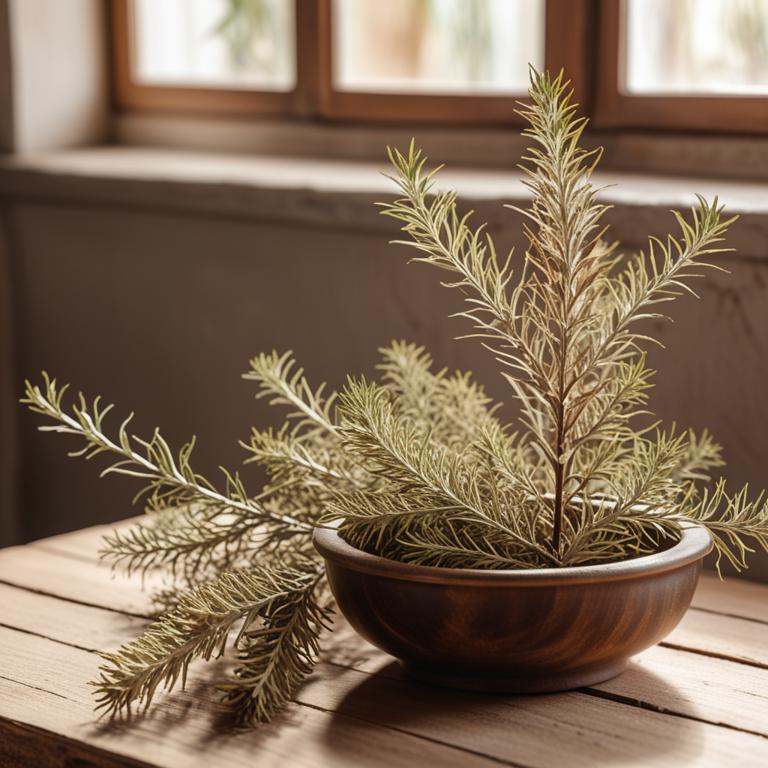
Ear Blockage: Exploring Medicinal Herbs and Natural Remedies
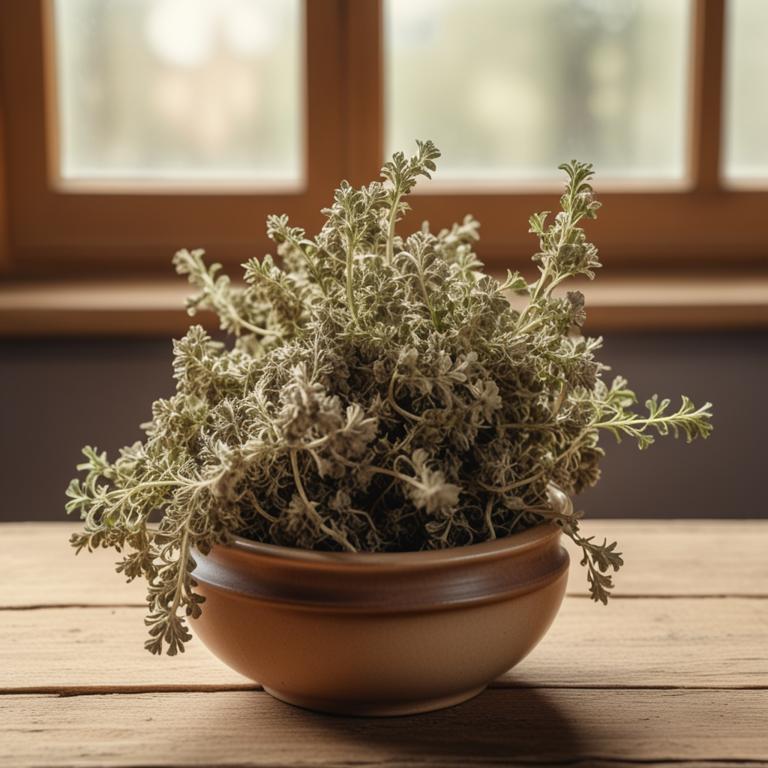
The Complete Guide to Acute Bronchitis: Causes, Medicinal Herbs, and Herbal Preparations
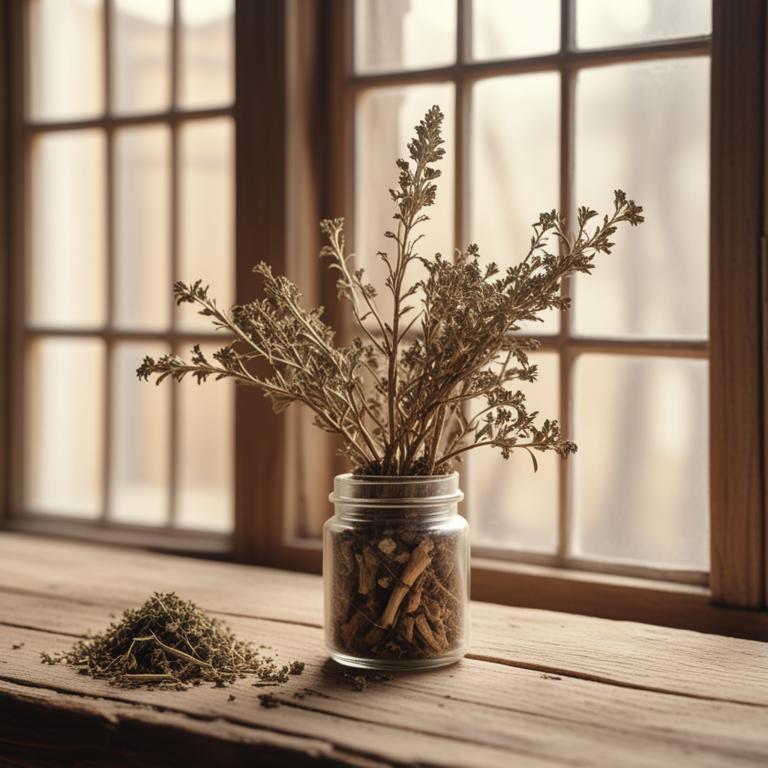
Understanding Coughing Fits: Causes, Medicinal Herbs, and Herbal Preparations for Relief
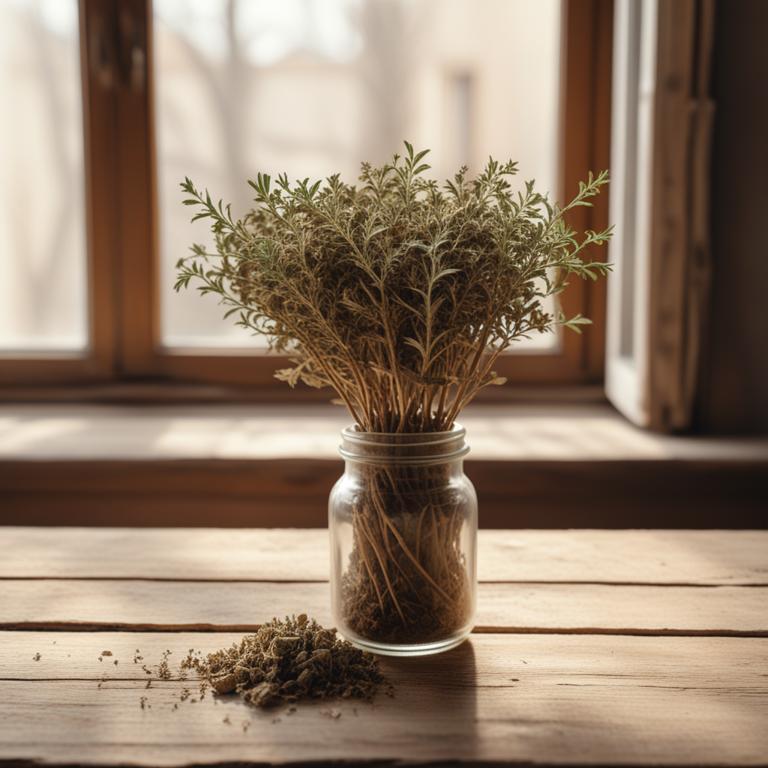
Banish Dry Throat: Exploring Medicinal Herbs and Herbal Preparations for a Soothing Solution
